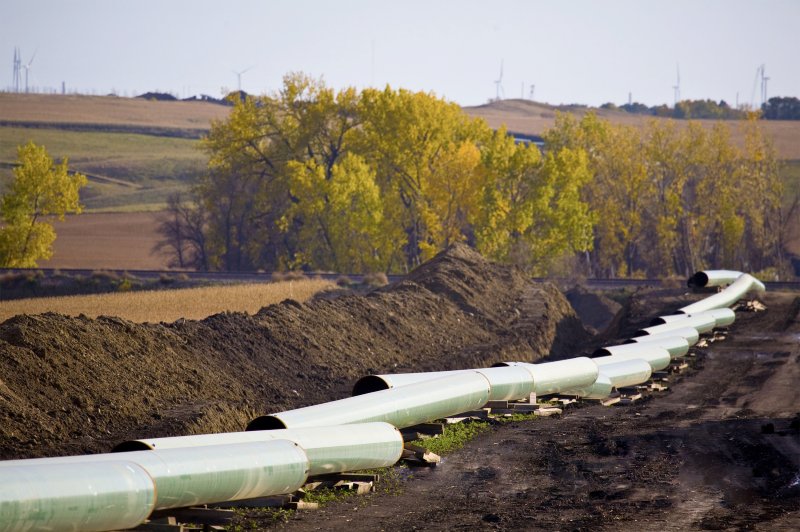TransCanada points to study that says using pipelines to transport oil and natural gas is safer than rail. Photo courtesy of TransCanada.
CALGARY, Alberta, Aug. 14 (UPI) -- Pipeline company TransCanada pointed to a study that suggests the increase in the rail transport of crude oil is a risky option for the industry.
TransCanada spokesperson Mark Cooper in an emailed statement said a report from The Fraser Institute shows transport of crude oil and natural gas in Canada by pipelines is 4.5 times safer than rail. For its long-delayed Keystone XL pipeline through the United States, the company said pipelines are also substantially less carbon intensive than other modes of transit.
"Federally regulated pipelines in Canada currently move just under 15 times more hydrocarbons than do the railroads," Kenneth P. Green, the study's lead author, said in a statement. "But with increased production and continued opposition to new pipeline infrastructure, more and more oil is being pushed to rail – a mode of transport which is more likely to experience a spill."
By mining federal Canadian data, the study finds that while pipelines did experience more issues than rail because of larger transport volumes, more than 90 percent of reported pipeline incidents caused little direct damage to the environment and 16 percent resulted in no spills.
Green said statistics from federal regulators show nearly all of the crude oil sent through federally-regulated Canadian pipelines "arrived at their destination safely."
In July, the federal Transport Canada filed charges against Montreal, Maine and Atlantic Railway for a 2013 derailment of a train carrying crude oil through Lac-Megantic, Quebec. The incident left more than 40 people dead.
Opponents of Keystone XL, submitted for U.S. approval more than six years ago, point to a legacy of releases from the existing Keystone pipeline and worry the production of Canadian crude oil may be more carbon-intensive than other forms.
A State Department review of the pipeline found some of the environmental issues would be prevalent with or without Keystone XL. Canadian leaders, along with Republican members of the U.S. Congress, have pressured Washington to sign off on the permits necessary to build the pipeline across national borders.
U.S. President Barack Obama said he'd veto any measure designed to circumvent the normal vetting process for Keystone XL. Green in the past described Obama's veto threat against Keystone XL as "slow motion Kabuki theater."















